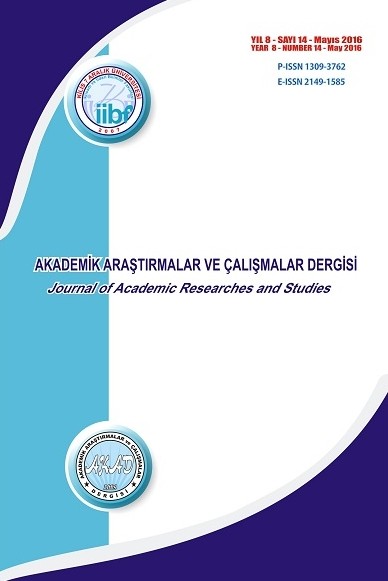RİSK YÖNETİMİ VE ÜLKE UYGULAMALARINDA YÖNETİM MODELLERİ
Risk, Risk Yönetimi, Risk Yönetim Modelleri
___
- Aırmıc, Alarm, Irm. (2010a). Kurumsal Risk Yönetimine Yapısal Bakış Açısı ve ISO 31000 Yükümlülükleri. http://www.theirm.org/documents/SARM_ERM_000.pdf. [08.03.2012].
- Aırmıc, Alarm, Irm. (2010b). A Structured Approach to Enterprise Risk Management and the Requirements of ISO 31000. http://www.theirm.org/documents/SARM_FINAL.pdf. [28.04.2011].
- Arthur J. Gallagher Risk Management Services, Inc. (2009). Road to Implementation ERM for Colleges and Universities. http://www.ajgrms.com/portal/server.pt/gateway/PTARGS_0_28406_570311_0_0_18/ERM%20TT%20Report%20Final%209-23-09.pdf. [29.05.2011].
- Broadleaf Capital International Pty Ltd. (2007). The Australian and New Zealand Standard on Risk Management, AS/NZS 4360: 2004. http://www.ucop.edu/riskmgt/erm/documents/asnzs4360_2004_tut_notes.pdf. [14.08.2011].
- Burnaby, P. ve S. Hass. (2009). Ten steps to enterprise-wide risk management. Corporate Governance, C: 9. S: 5. 539-550.
- COSO. (2004). Enterprise Risk Management-Integrated Frmaework- Executive Summary Framework. Eylül.
- COSO. (2005). ERM&Implications for Internal Auditors. Corporate Governance and Sarbenes-Oxley Hulb Bulletins. Temmuz. C: 7. S: 6. 1-9.
- FERMA. (2003). Risk Yönetim Standardı. http://www.ferma.eu/wpcontent/uploads/2011/11/a-risk-management-standard-turkishversion.pdf. [11.03.2012].
- Fionda, S. (2010). The Changing Faces of Risk Management: The Evolution of a Concept. http://irmforum.files.wordpress.com/2010/12/irmf03thechangingfacesofriskmanagement.pdf. [10.02.2011].
- Gaidow, S. ve S. Boey. (2005). Australian Defence Risk Management Framework: A Comparative Study. Australia: DSTO Systems. Sciences Laboratory.
- Güneş, Ş. ve S. Teker. (2010). Türk Enerji Sektöründe Kurumsal Risk Yönetimi Farkındalığı. Doğuş Üniversitesi Dergisi, C: 11. S: 1. 64-76.
- Goy, J., G. Purdy, A. Schanfield, J. Lark, J. Talbot, J. D. Plessis, J. DeRose, P. Croke ve A. Dali. (2012). Global ISO 31000 Survey 2011 Result&Analysis. http://www.iso31000survey.com/Global_Survey_ISO_31000_English.pdf. [10.09.2012].
- Hopkin, P. (2012). Fundamentals od Risk Management: Understanding, Evaluating and Implementing Effective Risk Management. Second Edition. Great Britain and United States: Kogan Page Ltd.
- IIA Position Paper: The Role of Internal Auditing in Enterprise-wide Risk Management. (2009). The Institute of Internal Auditors. IPPF_PP_Role_of_IA_in_ERM_01.09[1].pdf. [10.09.2011].
- InConsult. (2009). Risk Management Update ISO 31000 Overview and Implications for Managers. http://www.inconsult.com.au/Articles/ISO%2031000%20Overview.pdf. [06.02.2012].
- Intosaı. (2004). Guidelines for Internal Control Standards for The Public Sector. 1-71. http://intosai.connexcchosting.net/blueline/upload/1guicspubsece.pdf.[22.05.2011].
- Intosaı. (2007). Guidelines for Internal Control Standards for the Public Sector Further Information on Entity Risk Management. 1-39. http://www.issai.org/media(577,1033)/INTOSAI_GOV_9130_E.pdf. [22.05.2011].
- Kinney, W. R. (2003). The Research Opportunities in Internal Audit. Auditing Risk Assessment and Risk Management Process. Bölüm 5. Altamonte Springs, FL: The Institute of Internal Auditors.
- Manıgent. What is BS 31100. http://docsfiles.com/view.php?view=http://manigent.com/storage/downloads/What%20is%20BS31100.pdf&keyword=bs%2031100&count=. [11.09.2012].
- Mattie, J.A. ve D.L. Cassidy. (2008). Achieving goals, protecting reputation:Enterprise Risk Management for Educational Institutions. http://www.universityofcalifornia.edu/regents/regmeet/july08/a7a.pdf [11.09.2011].
- Maytjewicz, G. ve J. D‟arcangelo. ERM-Based Auditing. http://www.gapent.com/media/inthenews/Article-Internal_Auditing-ND.pdf. 1-12. [03.11.2010].
- Non, A.J. Are We Ready for Enterprise Wide Risk Management?. 1-37. http://www.picpa.com.ph/getmedia/114f621e-84bc-45ff-b43a961532bb55eb/erm.aspx. [12.09.2011].
- Olson, D.L. ve D. Wu. (2010). Enterprise Risk Management Models. Berlin: Springer –Verlag Berlin Heidelberg.
- Pearson, DDR. (2007). Managing Risk Across the Public Sector: Toward Good Practice. Basan: Victorian Auditor-General‟s Directors: 1-8. http://download.audit.vic.gov.au/files/Managing_risk_report.pdf [Erişim Tarihi: 10.09.2011].
- PriceWaterHouseCoopers. (2008). A Practical Guide to Risk Assessment. http://www.pwc.com/en_US/us/issues/enterprise-riskmanagement/assets/risk_assessment_guide.pdf [02.09.2011].
- Ramsay, C. (2009). Workshop on British Standard Code of Practice for Risk Management BS 31100:2008. http://www.theirm.org/events/documents/CameronRamsay-BS31100-IRM-23Apr09.pdf [08.03.2012].
- Razali, A.R., A.S. Yazid ve I.M. Tahir. (2011). The Determinants of Enterprise Risk Management Practices in Malaysian Public Listed Companies. Journal of Social and Development Sciences. Haziran. C: 1. S: 5. 202-207.
- Reding, F.K., P.J. Sobel, L. U. Anderson, M.J. Head, S. Ramamoorti, M. Salamasick ve C. Riddle. (2009). Internal Auditing: Assurance&Consulting Services, 2. Baskı, The IIA Research Foundation.
- RIMS. (2011). An Overview of Widely Used Risk Management Standards and Guidelines. http://www.rims.org/resources/ERM/Documents/RIMS%20Executive%20Report%20on%20Widely%20Used%20Standards%20and%20Guidelines%20March%202010.pdf [12.04.2012].
- Robillard, L. (2001). Integrated Risk Management Framework. http://www.tbsct.gc.ca. [14.01.2011].
- Staciokas, R. ve R. Rupsys. (2005). Application of Internal Audit in Enterprise Risk Management. Engineering Economics. ISSN 1392-2785. S: 2. 20-25.
- Standards Austrlia/Standards New Zealand. (2009). AS/NZS ISO 31000:2009 Risk Management-Principles and Guidelines. http://sherq.org/31000.pdf [06.03.2012].
- Standards New Zealand. (2010). New Risk Management Standard. http://translate.google.com.tr/translate?hl=tr&sl=en&tl=tr&u=http%3A%2F%2Fwww.standards.co.nz%2Ftouchstone%2FIssue12%2FBusiness%2FNew%2Bri sk%2Bmanagement%2BStandard%2Bavailable%2Bnow%2Bseminars%2Bplanned%2Bfor%2Bearly%2B2010.htm&anno=2. [04.03.2011].
- Standards Policy and Strategy Committee. (2010). British Standard Risk Management-Principles and Guidelines BS ISO 31000:2009. Oxford Brookes Athens. http://graelaws.files.wordpress.com/2011/01/risk-bsi-2010.pdf. [05.04.2011].
- The President of The Treasury Board. (2004). Integrated Risk Management Implementation Guide. http://www.tbs-sct.gc.ca/pol/doceng.aspx?id=12254§ion=text#sec3.3).ca [07.02.2011].
- Tonello, M. (2007). Emerging Governance Practices in Enterprise Risk Management, The Conference Board, Inc.Research Report R-1398-07-WG, 1-99. http://papers.ssrn.com/sol3/papers.cfm?abstract_id=963221 [01.02.2010].
- Walker, P. L., W.G. Shenkir ve T..L. Barton, (2002). Enterprise Risk Management. The Institute of Internal Auditors Research Foundation. http://www.webguvenligi.org/wpcontent/uploads/2007/08/Threat%20Risk%20ModelingTRK.pdf
- http://www.continuitycompliance.org/risk-management-bs-iso-31000-vs-bs-31100/
- ISSN: 1309-3762
- Yayın Aralığı: Yılda 2 Sayı
- Başlangıç: 2009
- Yayıncı: Kilis 7 Aralık Üniversitesi
DÖVİZ KURU DALGALANMALARININ TARIMSAL DIŞ TİCARETE ETKİSİ: TÜRKİYE ÖRNEĞİ
YENİLİK EKONOMİSİNİ ÖNE ÇIKARAN GELİŞMELER
TURİZM SEKTÖRÜNÜN EKONOMİDEKİ YERİ VE ÖNEMİ
Aliye AKIN, Mustafa Yaşar ŞİMŞEK, Adnan AKIN
TÜRKİYE VE BAZI ÜLKELERDEKİ VERGİ REFORMLARINA BİR BAKIŞ
